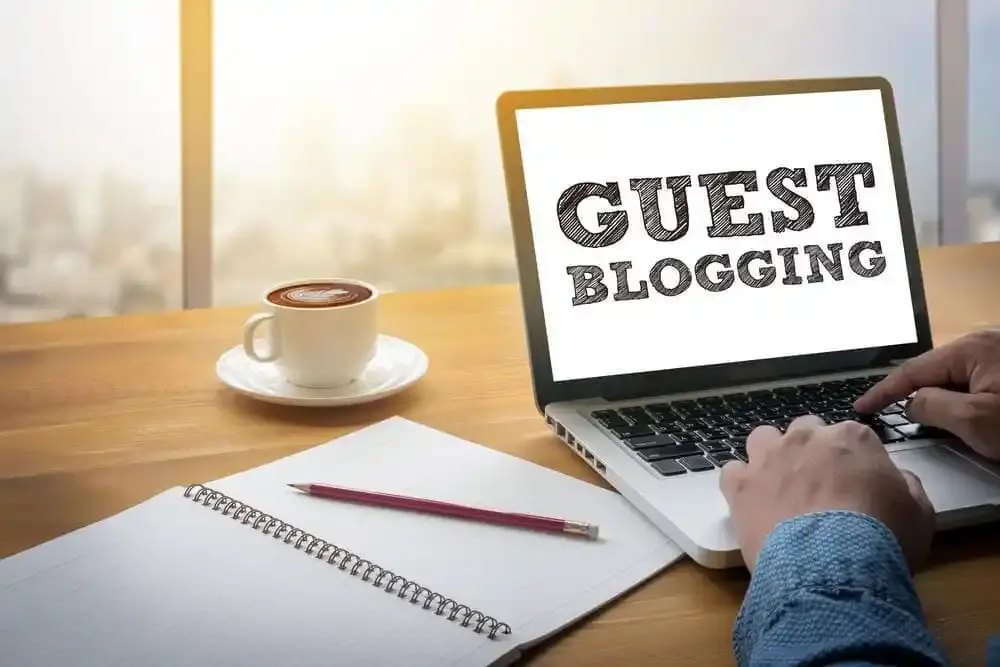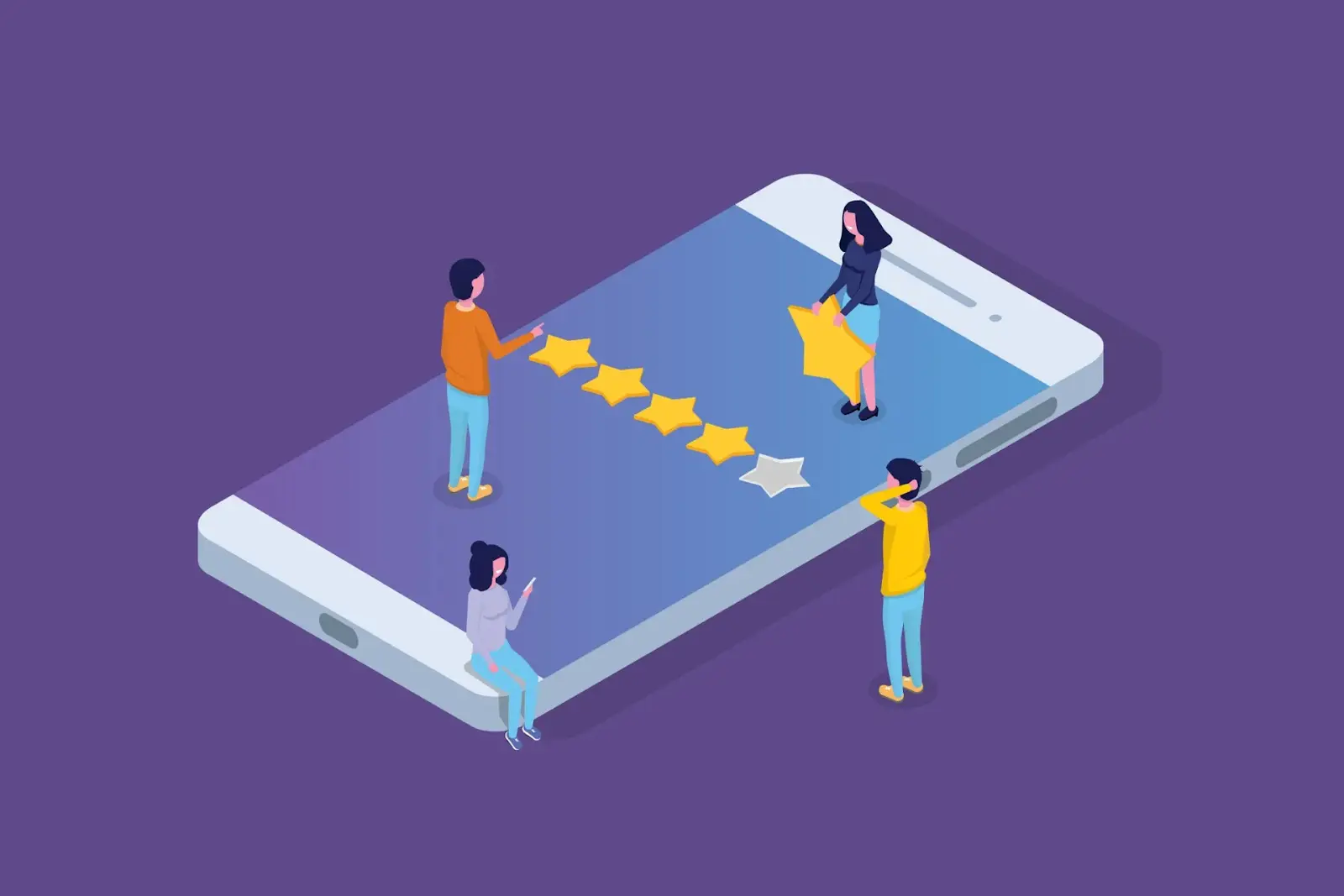Top 10 Best Link Building Strategies for eCommerce

SEO link building is challenging. That statement is short, but the truth behind it is convoluted. You know you need to get links from other relevant, high-authority sites for your eCommerce site to perform well enough in search engines for customers to find you.
But how can you persuade strangers running other websites that your site is worth linking to?
Asking somebody else to give you links is asking for a favor. This is awkward and likely to be met with a 'no' answer if you don't have some sort of pre-existing relationship.
The best link building strategies for eCommerce are to find ways to make the relationship more reciprocal. You want other sites to link to you because there's something in it for their readers and for them.
Here are some effective link building tactics for eCommerce brands, you should try to do just that.
Guest Posts on Relevant Websites

When you write an excellent post for a website, you give them something of value. As a result, most sites that accept guest posting expect and agree to allow you to include a link or two back to yours in the posts you submit.
In addition to earning your links, you can reach a new audience that may not yet be familiar with your website or brand, potentially bringing you traffic.
For this eCommerce link building tactics to work, you should find websites targeting your desired audience and related to your products or industry. A guest post on a completely unrelated site won't be worth your time. Also, look for websites that have readers and authority.
Once you've identified blogs that are worthwhile targets, take a moment to research the subjects they cover, the style they write, and who's reading them. Any topic you introduce needs to be of value to their audience for them to accept.
Finally, ensure the article you write for them is top-notch. Shiftless content won't be published, and you won't earn links. And even if it gets published, it won't persuade any of their audience to come to your eCommerce site.
Create Content Partnerships with Relevant Websites

There are brands that offer something similar or complementary to what you sell without being a direct rival. Those are good brands to consider as a content partner.
You can find a deal to create content for them while they create content for you. While doing so, you must ensure that the content created makes sense for the other brand's audience and is aligned with their content and backlink strategy.
Or you can think of ways to create content together, like a joint webinar. By working together, you can tap into the resources and talents that both have.
Therefore, you can offer and expand your audience by reaching all the people you've both attracted. And, of course, you'll both get external links in the process.
Partner with Local Businesses
There are local communities you can join to make new opportunities and connections. Enter local networking events and get to know some businesses in the area.
Connections you make can translate into mutually beneficial partnerships, including eCommerce link building.
A local business owner selling complementary or related products to you could become a promotion partner.
For example: if you sell dog collars, a local business selling homemade dog food can advertise your products in their blog posts. In return, you promote hers in a giveaway.
Having a local partnership that benefits both of you can take some creativity. But it can be a helpful way to raise the awareness of your brand and, at the same time, do local link building.
Offer Free Products for Reviews

Look for affiliate sites and influencers who write reviews for things similar to what you sell. After that, contact and offer them a free product in exchange for a review.
Clearly, this backlink strategy for eCommerce only works if you're confident in your products (and you should!). You can't ask for positive reviews. You can only hope for them to happen.
Nevertheless, if you make a special offer to a website owner you believe your products are good fits, getting a review will increase (hopefully positive) your product awareness. And, usually, you get links back to your site.
Start Charity Projects
Many websites are happy to promote any charity project. For them, it's an easy way to feel like they're helping out.
If you set up a charity through your eCommerce business, such as starting a scholarship or donating a portion of your profits to a notable case, other sites might recommend or promote your site to their own readers.
However, this link building strategy for eCommerce may cost you a lot and is best done for reasons other than just getting links.
Do Original Research

Buzzsumo's research on what types of content earns links most consistently shows that original research is one of the most reliable link building strategies for eCommerce sites.
If you wonder why this is so, look back at the beginning of the above paragraph. Whenever someone cites a finding or statistic from your research, they'll link back to you.
Creating original research isn't always easy. But it's very effective and can be well worth the effort.
Consider questions that readers and other businesses in your industry have that you can help answer with an analysis or survey. If you see an opportunity for research or statistics that hasn't been done yet, or you can do better, go for it!
Find Brand Mentions on the Web

Whenever someone mentions your brand on the web, it's an opportunity to get links for your eCommerce site.
First, you want to find websites that refer to your brand. You can do so by setting up Google Alert for your brand name. Therefore, you'll receive an email every time a site mentions your brand in the future.
Next, try to locate information about who is running those websites. After that, contact and ask them to add links to your eCommerce site. In addition, take the time to visit the websites before you reach anyone to ensure that:
- They are actually referring to your brand and not just using a phrase that includes it. This is especially important if you have a brand name that contains words that people commonly use.
- The mention is positive. It's unlikely that a site owner who dislikes your products or brand will link to your site.
You're still asking a stranger to help you here, so many may either ignore or refuse to make changes.
Yet, since they already have mentioned your brand, they're more likely to provide you links than someone with no brand connection to your site.
Create Comprehensive Buyer's Guides

More than half of consumers declare they always do research before purchasing something.
Therefore, if you create content that helps them make more informed choices, you can both earn links and visitors near the point of purchase in the process.
Try to think through every question and consideration a customer may have when checking your products. Next, answer them in one helpful, comprehensive buyer's guide.
When writing a guide, be mindful not to make it too promotional. Many customers may lose their trust if it sounds like a specific guide for your products.
Instead, provide general knowledge about choosing the best products for each reader's needs. This way, they'll be more likely to believe in you as a trusted source.
In addition, helpful, unbiased content will be more likely to earn links from other sites.
Broken Link Building

For this SEO link building strategy for eCommerce, you find links on other sites that are no longer working but previously linked to content similar to the ones you created. Then, you contact the owners asking to modify the links to point to your articles.
You're helping them by finding broken links they weren't aware of and suggesting an easy replacement. Therefore, they're more likely to take your recommendation and link to your site.
Finding relevant broken links can be time-consuming. But there are link building tools that can make it a bit quicker.
Contact Discount-Listing Sites
Do you offer any special discounts for a particular audience? Numerous eCommerce sites offer discounts to students, veterans, teachers, or needy workers. And many sites put together a list of deals that people in each category can benefit from.
Find sites that direct their visitors to online stores where they can get discounts. Then, reach out to let them know they can add you, too.
A discount can be a way to incentivize more sales and earn links. Therefore, this is another clever link building strategy for eCommerce that offers additional business benefits.
Best Link Building Strategies for eCommerce: FAQs
What are some examples of link building strategies?
Some examples of link building strategies include:
- Guest blogging and contributing to other websites
Broken link building and finding opportunities to replace broken links with your own content - Creating and sharing high-quality infographics and visual content
- Creating shareable content and promoting it through social media and other channels
- Building relationships with influencers and other relevant websites in your niche
What is ecommerce link building?
Ecommerce link building is the process of acquiring links from other websites to your ecommerce store. This can help to increase the authority and visibility of your store, as well as drive more traffic and sales. Ecommerce link building strategies may involve creating content, promoting products, or building relationships with other websites and influencers.
What are the most effective link building strategies?
The most effective link building strategies will depend on your goals and niche, but some generally effective strategies include:
- Creating high-quality, valuable content that people want to link to and share
- Building relationships with other relevant websites and influencers
- Finding broken links on other websites and offering your own content as a replacement
- Guest blogging and contributing to other websites
- Promoting your content and products through social media and other channels.
What are linking strategies?
Linking strategies refer to the tactics and techniques used to acquire links from other websites to your own website. Linking strategies may involve creating high-quality content, building relationships with other websites and influencers, or finding broken links on other websites and offering your own content as a replacement.
Effective linking strategies can help to increase the authority and visibility of your website, as well as drive more traffic and sales.
Final Words
The most high quality backlinks aren't only good for SEO. They're also the ones most likely to send relevant traffic to your site.
Brilliant link building strategies for eCommerce won't just treat this as a numbers game trying to get as many links as possible, but rather focus on what makes sense for your business.
Can a potential customer come across and follow the links? Does it help you build your brand awareness? If the answers are yes, those are the links worth your time and effort building.


